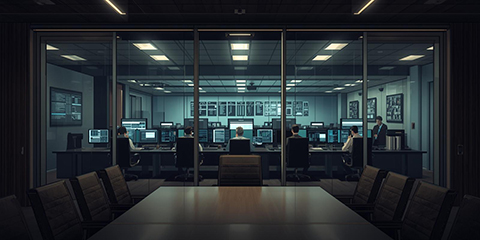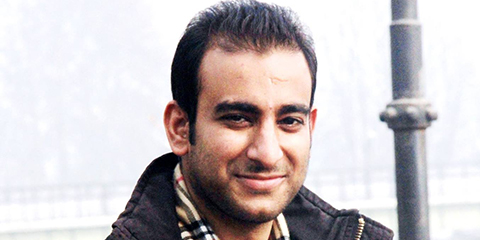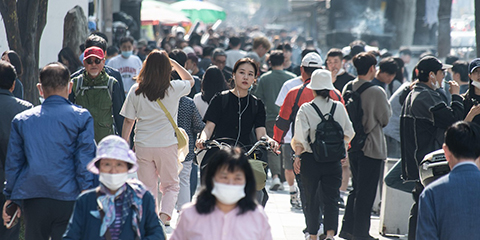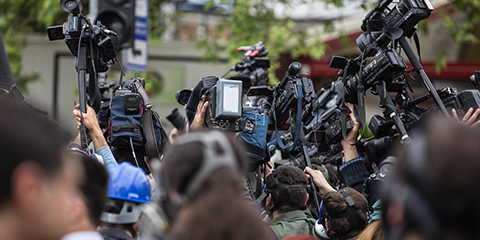The value of a mentor
JournalismPakistan.com | Published 6 years ago | Stephen Manuel
Join our WhatsApp channel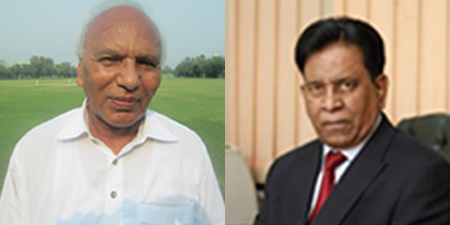
I was recently told by this cocky young Turk that the day of ustaad-shagirid is long over. He asserted that there was nothing he could learn from any individual that he could not find online or figure out for himself. "All these so-called ustaads can do...," he said tongue-in-cheek, "is to reminisce about when they were young. I don't have time for stories. I believe in action."
Now, ordinarily, I would let such a provocation slide. But this guy got under my skin. He had this condescending look in his eyes that said: "You're one of those guys who lives in the past and relies on the experiences of others to get where you are. You needed a crutch. Look at me, I've fast-tracked there already… ha-ha-ha."
If I could have smacked him, I would have. Instead, I gave him a baleful glare and said: "Get back to me in 20 years, if I'm still alive, and then we'll talk."
I expected that by the end of the day I would have forgotten this pompous little piece of s--t, but no I continued to dwell on his smug face and his irksome comments and while I did so I began to think of all those wonderful journalists from whom I learned so much and to whom I'm so thankful for understanding and appreciating the profession.
These were individuals who in turn had learned from others and did not feel shy to share their experiences and knowledge. Totally selfless. They never showed off or pretended to know everything. Even though they didn't have to, they believed it was their duty and obligation to teach others what they had learned. As a young journalist back in the '80s and ‘90s I was extremely grateful for every bit of information and lesson coming from these individuals.
Let me tell you here, and I don't care what you think, I consider all those I learned something from as towering giants in a profession that has since not only almost disintegrated into nothingness but has become so immersed in pettiness, mediocrity and fast-tracking that most of the time those that say they belong to the media don't even know what journalism is or stands for.
They have no idea of the basics, the starting point, the nitty-gritty, the do's and the don'ts, the finer points, the gridlines, the process, the big picture. For them, it's anything does. It's the era of jugaar and sab kuchh chalta hai.
At the risk of being a pain in the ass, I'm going to list a few of the individuals that helped shape me as a journalist and bring about the surety and confidence in me that they possessed , and I so admired and respected.
My first ustaad, and the person that both JournalismPakistan.com Editor Imran Naeem Ahmad and I learned the ropes from was Sarfaraz Ahmed (pictured, left), the man-in-charge of the sports desk at The Muslim. Yes, the Sports Desk! He was the man who initially taught both Imran and myself a few years apart, everything we needed to know about back then, be it subbing, triple, double and single columns, picture placement, photo editing, making headlines, proofreading, editing, page layout, writing reports, etc.
Neither Imran nor I felt ashamed or that it was beneath us to run down the flight of steps to the very depths of the basement beyond the printing press to get headlines made or remade even as the headline makers gave us a tough time. We had office boys that could do this, but we did it ourselves. We would put up with the caustic remarks of the senior layout men as they scoffed at what we thought was the right place to put a story, we ignored their resistance to making changes and corrections, we bit our tongue as Sarfaraz Sahib altered the headline we thought had been so good. We learned the intricacies of good proofreading.
We learned how to work under pressure or when tthe ime was running out. Sarfaraz Sahib could get impatient sometimes , nd there were times we could not understand what it was that he required us to do, but we soldiered on, believing we were learning something.
Ahmed Hassan: Now this man was the creator of the City Diary. I and many others learned from him that it was okay to write in a non-formal manner about our surroundings, incidents, and issues that affect our everyday life. He gave us a license to be creative and casual and to write about flowers, ponds, and lakes, the Margalla Hills, the local markets, fashion shows, civil matters, the changing seasons...pretty much whatever caught our fancy. He believed that words mattered and since city diaries were not supposed to be very lengthy, to be very measured but expressive in our writing. He insisted it should be cohesive and yet be attractive. I learned the mantra of this laid-back, soft-spoken man and never forgot it.
Ghani Jaffer: I used to see Ghani Jaffer from across the Sports Desk and wonder if the man ever smiled. It would be no fun to work with a man of such a sour demeanor. I did not want to be on his desk. And yet his desk ran like a well-oiled machine — quick, efficient and productive. And then I took another look. He did smile and could be very pleasant when he wanted to. When he was not being super sarcastic, he possessed a wry sense of humor that was as dark as it was telling. Indeed, a fantastic sense of humor. One just had to recognize it. The onus was on you. Best of all, Ghani believed in his team and stood up for them. This did not mean they could take advantage of him. Ghani was also very clear about what he wanted on his pages. From him I learned that it was important to be tough and clear-minded, but it was even okay to let your guard down a bit now and then.
Khalid Akhtar:: Harassed and stressed, Khalid Akhtar was my first chief sub. He is the man who decided, along with the news editor, which stories made it to the newspaper, sports and city news excluded. He systematically and tirelessly went through rolls and rolls of incoming news, sorting out and assigning stories to sub-editors at the News Desk with specific instructions for each. He would do so in an affable and patient manner. From him I learned that one had to be organized and even-handed while dealing with the sub-editors at the desk while keeping an account of what was going where. I also learned from him that it was better to be kind and polite with people to get the job done rather than bossy and demanding.
Salim Bokhari: In cricketing terms, Salim Bokhari (pictured, right), our night editor/news editor at The Muslim and later The News, was the ultimate all-rounder. He could and would be anywhere and everywhere, giving directions, a helping hand, advice — and he did it all in a firm yet friendly manner. He could overlook the making of a page or paste it, as and when required. He could proofread and get stories from the proofreaders when we were running out of time. He could look at a headline and suggest a better one, and he would do this in the most endearing Urdu and Punjabi, a few choice cuss words thrown in. From him I learned, it was essential to know everything, be helpful, and also be flexible with co-workers as well as the entire work process day in and day out.
H.K. Burki: From this wonderful, dignified, and charismatic columnist I learned one very important lesson. One needs to stay unflappable and dignified no matter what.
On a certain day, at The Muslim, Burki Sahib was sitting in a cubicle adjacent to the News Desk deep in thought, working on his column. A rather boisterous, self-opinionated newcomer to the desk was going on and on about how overhyped some columnists were and that he did not have a very high opinion about them. He could probably write better himself. Then he stumbled dangerously into territory from which there was no return. Says he: "And that H.K. Burki what does he write about? Ooper say urhh jaati hai. It needs a philosopher to understand what he's about and what his writing is about. None of it makes sense. I could probably do a better job." Nobody answered or even hinted at a response. There was total silence. You could hear a pin drop. Just then Mr. Burki purposefully strode into the area of the News Desk, looked directly at the offending sub, and said: "Every cock-sparrow has his day!"
Some of us laughed. Others sheepishly looked down. The boastful subs looked around unashamed, absolutely befuddled: "Oh ki keh kay gaey nay?"
Bikram Vohra: When I joined the Khaleej Times, this man was the chief editor. He wrote my job application, signed it himself, countersigned it and gave me a job — and I did not even know him. He’d heard good things from a few other colleagues to be, former colleagues, and believed in me. Belief is a big thing. That is what I learned from him. It's another thing altogether that one tries to live up to that belief.
And that's not all Bikram was about. A prolific and captivating writer, he led by example and encouraged everybody to make a contribution through writing. Bikram was also about confidence; his confident style rubbed off on those around him. Best of all, Bikram was a team man. He stood up for his staff and had their backs. And yeah, oh yeah, he looked and sounded like a chief editor. I believe all these attributes would stand anyone in good stead.
Tahir Mirza: Tahir Sahib was the executive editor of the Khaleej Times. In the very first few days of being there, I and other newcomers quickly learned he was a no-nonsense type of person who took his work very seriously and demanded the same from others. He was prim and proper, dressed as such, and did not encourage familiarity. He did not suffer fools either. He was a stickler for correct English, precise, cohesive written paragraphs, and proper usage of punctuation marks. From him I learned the difference between a colon and semi-colon and their usage. Believe me when I say it was learned the hard way. As with English, Tahir Sahib's Urdu was impeccable — nay to be admired and relished. Just beautiful to the ears. I remember once a sub-editor was summoned for the wrong usage of a word. The man did not know what he had done wrong. Tahir Sahib shook his head in dismay and disbelief and jokingly suggested: "Bhai hamaray chehlay ban jao shayed kuchh seekh jao gay." The sub-editor immediately bristled and replied: "No thank you, sir." The look on Tahir Sahib's face was of sheer amazement shaded perhaps with pity. He shook his head and said, "At least improve your Urdu. I said chehla (disciple), not chamcha (ass kisser)."
Best of all, Tahir Sahib was the perfect gentleman, and he had a big heart. My wife was expecting our second child, we were short of money, having paid for just moving to Dubai, etc., and under immense pressure because of the uncertainty surrounding the new job (some thirty people had just been sacked). In short, I was pretty desperate, especially with payday a full two weeks to go and me not knowing anybody well. For some reason I decided to go to Tahir Sahib for help. He listened to me as a father would and then gave me 500 dirhams. "Return it whenever you can," he said softly, gently. He did not imply I would not or could not. It was never meant to be paid back. If I had tried, he would have refused.
Great respect for this wonderful man. It was with great pain in my heart that I learned of his passing away.
Jamil Akhter: Daddy, as we called him at the News Desk in Khaleej Times, was our night editor and a damn fine one at that. He gave total respect to the News Desk, especially the chief subs, and in turn commanded endless respect from them. If there was a problem, you took it to Daddy. He knew what to do. His advice in matters regarding the newspaper, content, editing, layout, headlines, reporting, storylines and priorities was invaluable. Then again, so was his advice on personal matters. Jamil Sahib went out of his way to welcome newcomers to the Khaleej Times, inviting them to dinner, helping them settle in, making them comfortable. He took time out to do this. All very memorable traits demanding respect and appreciation.
But the most important of Jamil Sahib's many standout distinguishing attributes was his attention to detail. Jamil Sahib's thoroughness was legendary, so much so that we also nick-named him the Blue Spider. When a proof/dummy page went to Jamil Sahib for approval, it invariably came back with so much scribbling and corrections, alterations and adjustments that it would be blue, hence the nickname. We grumbled, groaned, and moaned under our breaths. We thought it was unnecessary.
But guess what — we hardly, if ever, got complaints from the chief editor, the executive editor, the management, or the readers because of Jamil Sahib's untiring thoroughness and attention to detail. Some thirty years down the line, I was made the editor of an English language daily. Guess what I did?
My editing pen turned the pages blue!!
Sam Varghese: The first time I met Sam I was left with the impression that this man probably didn't have a friend in the world. Not very tall, thickly built, thick-lensed eyeglasses, blue jeans, and a short-sleeved shirt. That was Sam on the first day and every day. He grunted a barely discernible, "Hello," and went back to work. Over the next four years I barely exchanged a few sentences with Sam as I was not on his shift. However, the few times I did work on his shift, he gave me less work to do, did not make many changes, and almost gave the impression he couldn't care less. One thing though that came through even then was that he was very methodical and sure of himself. For example, if he gave you a page with limited space, he would give you four or five stories, and they would fit almost to the millimeter if you managed to get your layout right. He expected you to get it right. He was polite and thanked you if you were done with your work and told you to go home. Sam appreciated surety and speed. No dilly-dallying, stalling or wasting time. On more than a few occasions I heard him remark that he had no time for people who were experts in "the art of looking busy." He would point them out.
After four years, I got to work on Sam's shift full time. It was a pleasure. If you worked hard, fast, and with purpose, nobody appreciated or respected you more than Sam. On Sam's shift I made up to nine pages. Four pages were a normal thing. The day went by like that. Sam was the embodiment of hard work, confidence, and self-belief and he instilled these qualities in all those that worked with him. If you couldn't cut it on Sam's shift, then you had no business being there at all. In my time on his desk, there were at least half a dozen people who couldn't. Sam would go to the night editor, the news editor and say, "I don't want them on my desk." That was it. They never questioned his verdict. From him I also learned that at times it was better to be blunt and ruthless than pretend to be understanding and cooperative. If you were not, then prepare to carry the burden of a laggard. Sam didn't suffer fools either. If you were not up to date with the latest developments in the news/current affairs, he would roll his eyes and cut you short. "Get your facts right," he would say.
Yes.
And that is what I want to say to all you guys who think you are on the fast track and know everything. Just like John Snow, you know nothing.
For all the mentors I have mentioned above, there was a lesson or lessons learned from every one of them and that much more. These are lessons I follow to this day. For all my mentors, Bless You, and thank you. And, for those of you, that still believe they know everything read this column again and yet again. Maybe you, too, will learn something.




